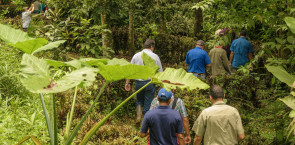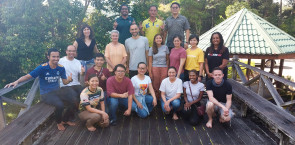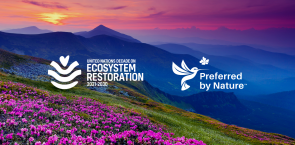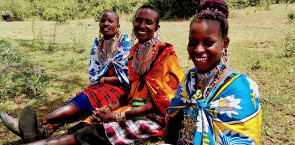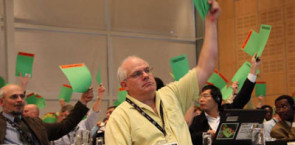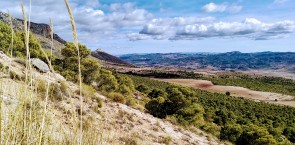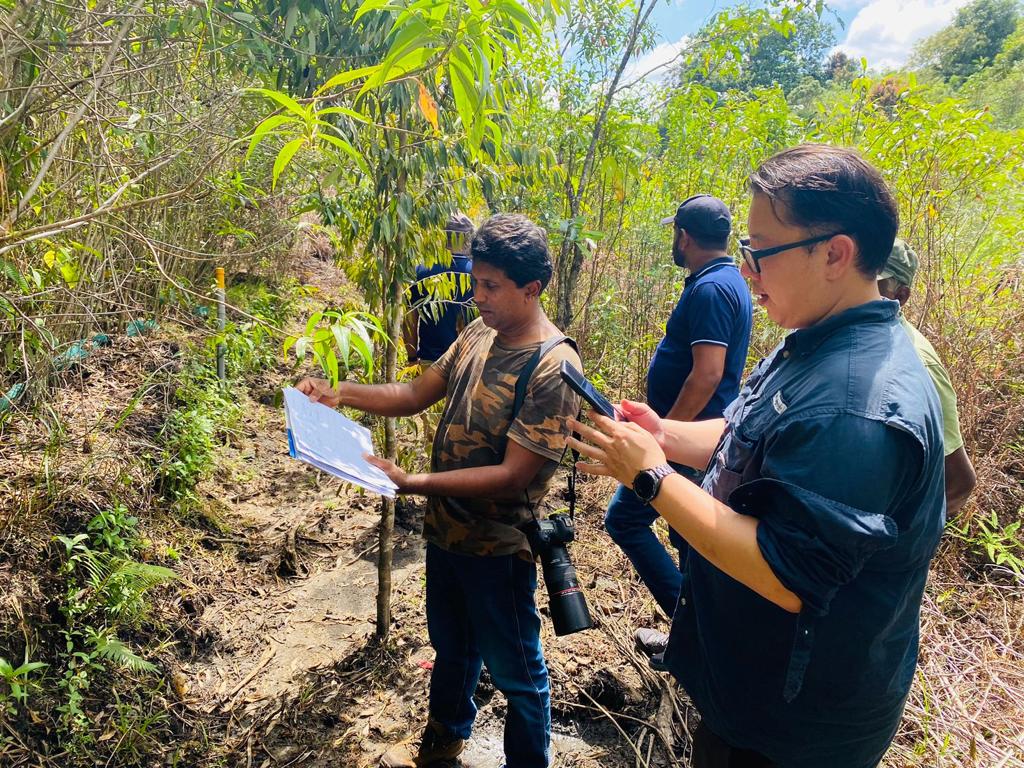
Three organisations in Sri Lanka have completed the first Ecosystem Restoration Verification audits in Asia, conducted by Preferred by Nature.
Sri Lanka's forests, once home to diverse flora and fauna, have suffered from human activity. But some organisations are working to bring them back to life.
Preferred by Nature is proud to announce the successful completion of the first-ever Ecosystem Restoration Verification audits conducted in Asia. These ground-breaking audits took place in Sri Lanka, where three organisations – Horana Plantations PLC, Talawakelle Tea Estates PLC, and Biodiversity Sri Lanka – underwent rigorous assessments against our Ecosystem Restoration Standard version 3.1.
These organisations have been working on various initiatives to restore degraded forests and enhance biodiversity in Sri Lanka.
“The Ecosystem Restoration Standard developed by Preferred by Nature provides a well-defined framework for successful restoration projects,” expressed Nicholas Fong, Ecosystem Restoration Specialist at Preferred by Nature and Lead Auditor for the verifications.
“By applying the standard, organisations like Horana Plantations PLC, Talawakelle Tea Estates PLC and Biodiversity Sri Lanka can ensure their restoration initiatives align with global best practices and demonstrate measurable results,” added Nicholas.
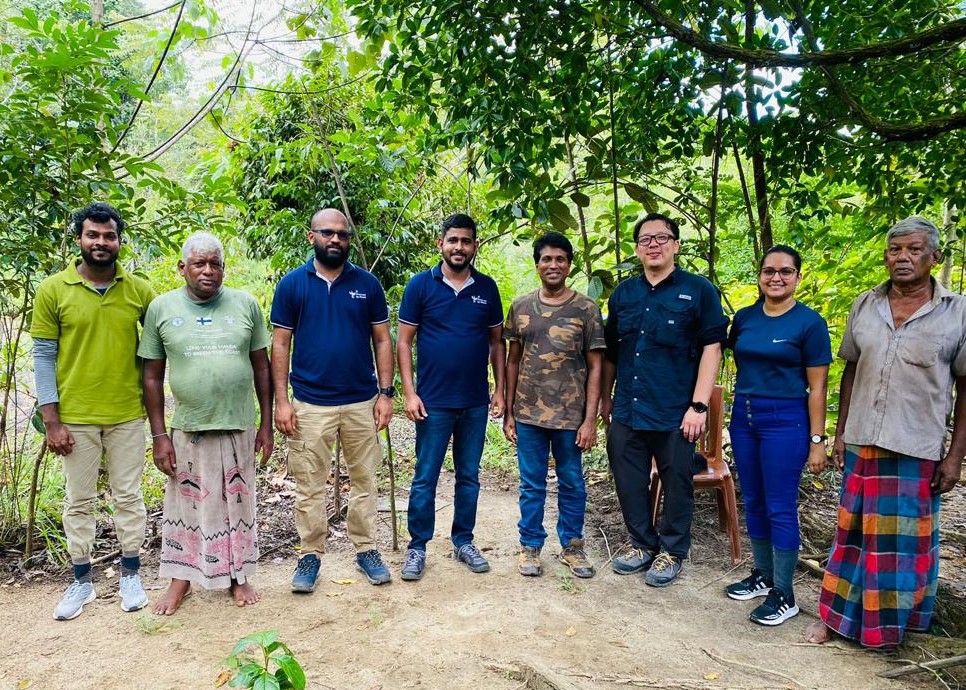
Diverse projects addressing critical challenges
Sri Lanka’s forests once echoed with the calls of diverse wildlife, but years of human activity had taken a toll. Fortunately, dedicated organisations have been leading a groundbreaking effort to bring these ecosystems back to life.
One noteworthy project is the ambitious project REGROW led by Horana Plantations PLC. The project encompasses two sub-projects: the Maskeliya Oya Project and the Halwathura Project.
The Maskelya Oya Project is carried out in partnership with the Wildlife and Nature Protection Society (WNPS) through their Preserving Land and Nature (PLANT) initiative. This project aims to restore a nine-kilometre-long forest corridor along the Maskeliya Oya, a tributary of the Kelani River basin, creating a vital passage for wildlife and contributing to the overall health of the ecosystem.
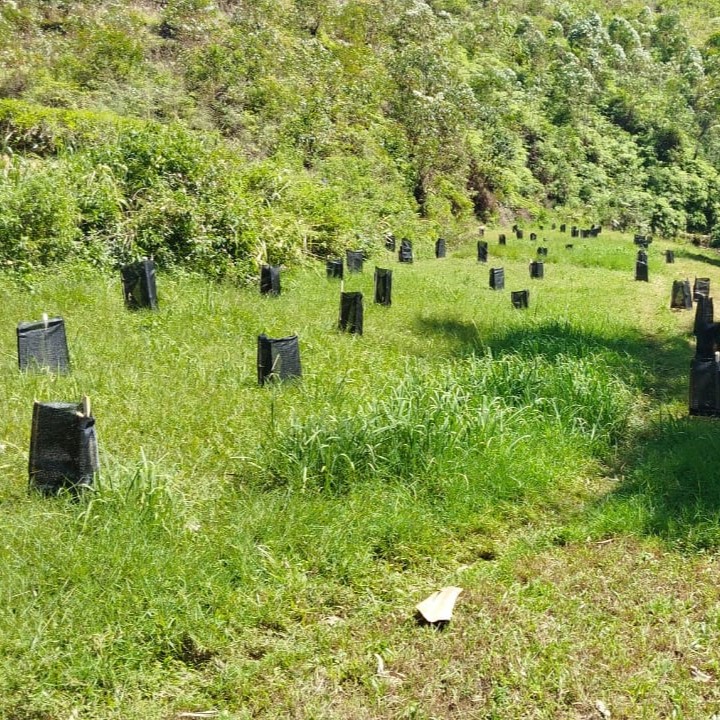 The Maskeliya Oya Project addresses habitat fragmentation - a critical challenge faced by Sri Lanka’s unique ecosystems. Years of agricultural expansion and intense settlement pressures have resulted in the loss of natural tree cover along the banks of the Maskeliya Oya, isolating previously connected forest patches.
The Maskeliya Oya Project addresses habitat fragmentation - a critical challenge faced by Sri Lanka’s unique ecosystems. Years of agricultural expansion and intense settlement pressures have resulted in the loss of natural tree cover along the banks of the Maskeliya Oya, isolating previously connected forest patches.
This project not only seeks to restore 55 hectares of forest but also aims to connect these restored areas to the Peak Wilderness Reserve, enabling crucial movement for various species. The restored forest will also contribute to a range of essential ecosystem services, including soil and water conservation, carbon sequestration, and climate change mitigation to achieve net-zero. Additionally, the project aims to create awareness and educate local communities about the importance of these services and their role in a sustainable future.
Horana Plantations PLC has also identified 100 hectares in Halwathura Estate to restore the natural ecosystem in the Low Country Region. This project, established through a Memorandum of Understanding between Hayleys Plantations and WNPS PLANT, focuses on the natural regeneration of a 100-hectare forest cover near the Kalu Ganga basin. Through this, the organisation seeks to contribute to increased forest cover while helping to restore vital ecological functions within this area.
Balancing sustainability and biodiversity
Another organisation, Talawakelle Tea Estates PLC, is focusing on planting native and endemic plants in their tea estates. Ultimately, this will help ensure the productivity of crops and tea lands, diligent soil conservation and maintain favourable microclimatic conditions through improvement of estates biodiversity.
Recognising the critical role of the St Clair Reservoir as a High-Value Conservation Area (HVA), the company implemented a large-scale planting initiative on identified old tea lands and Patna areas facing the upper Kotmale River.
The project aims to plant and establish secondary forests across significant hectarages with native and endemic plants across Talawakelle Tea Estates’ plantations. This initiative aligns with the company’s ReGen® Agenda 2030 for strategical business transformation to a regenerative business model. As of today, over 18,000 trees have been planted across two phases.
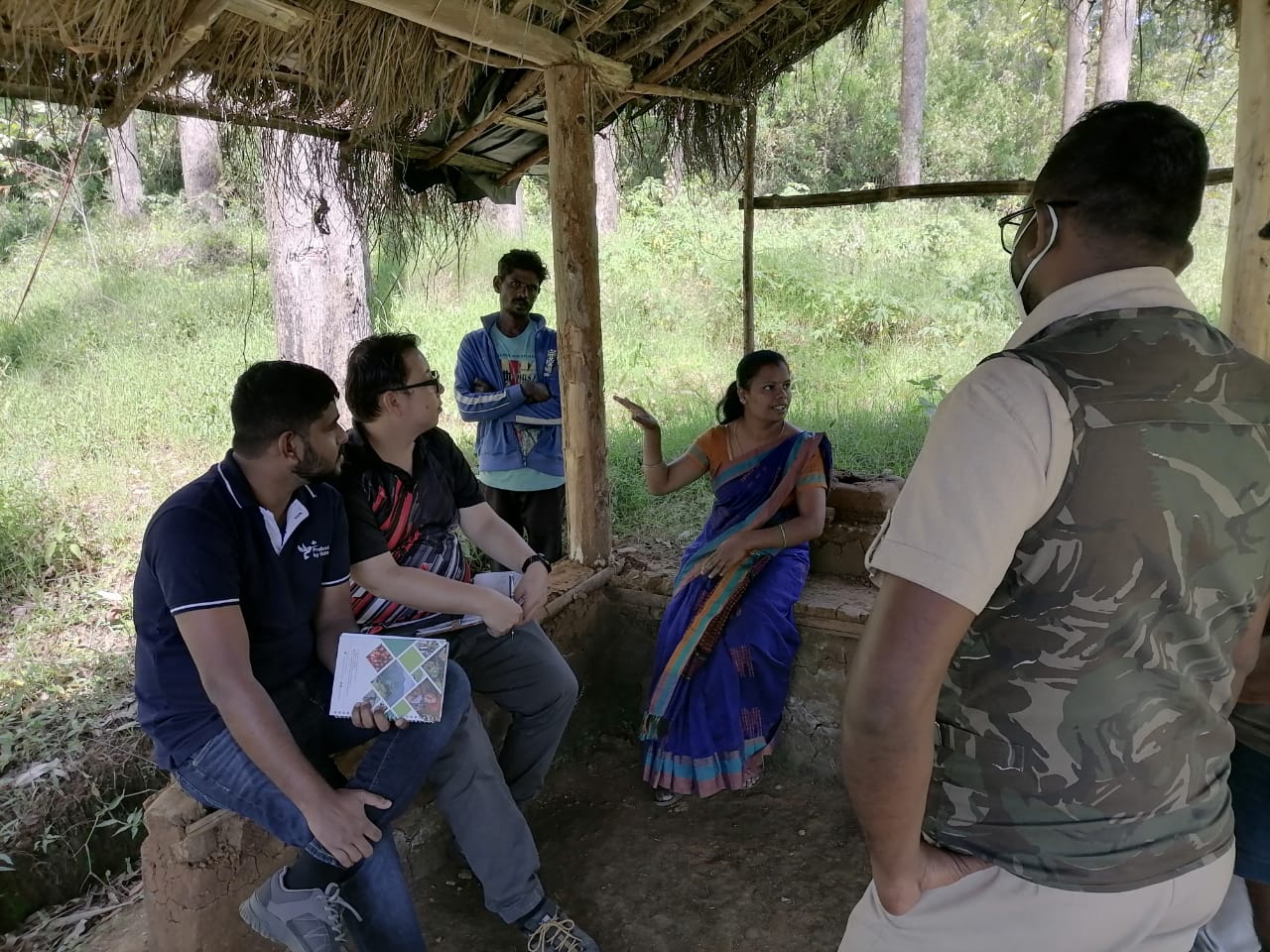
The company also works with various stakeholders, including government agencies, businesses and local communities, to raise awareness of and promote forest restoration.
Science-based approach with innovative incentive system
Biodiversity Sri Lanka (BSL) also successfully completed an Ecosystem Restoration Verification audit with Preferred by Nature for their project titled “Life to Our Forests” in the Kanneliya Conservation Forest.
This project focuses on reforesting a pilot 12-hectare block of land severely degraded by human activities. This is an ambitious initiative that was brought together by the Forest Department, IUCN Sri Lanka, and a coalition of private sector partners.
The organisation’s project takes a science-based approach, employing ecological restoration methodology to ensure the restored forest closely mirrors the original ecosystem’s species composition and biodiversity functions.
The project unfolds over a five-year period, encompassing various stages: Site preparation and nursery establishment; species inventory updates; long-term monitoring programmes; planting robust native species; and introducing sensitive species for increased diversity. A post-project ‘Sustenance’ phase is now ongoing.
Fostering effective ecosystem restoration
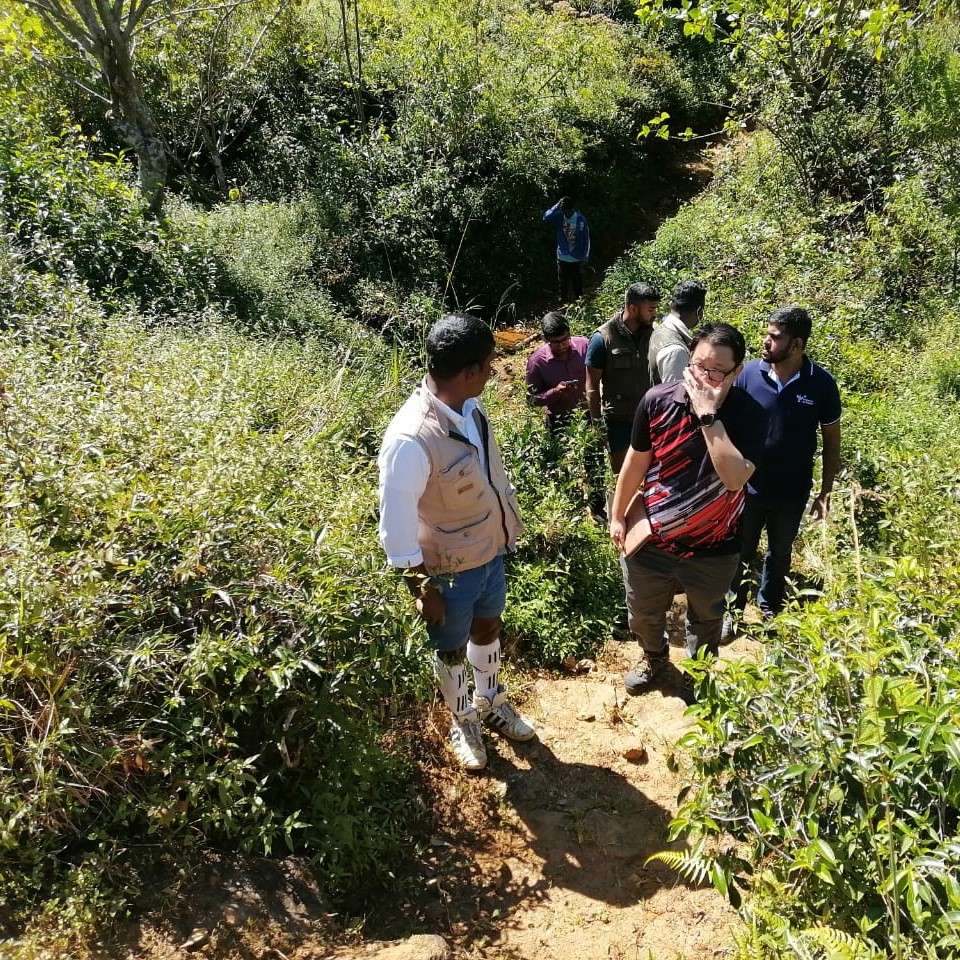 These successful audits mark a significant milestone for Preferred by Nature in the application of the Ecosystem Restoration Standard to support global efforts to restore vital ecosystems. It also represents a crucial step forward for Sri Lanka, highlighting the country’s dedication to promoting responsible environmental practices and demonstrating its commitment to the UN Decade on Ecosystem Restoration.
These successful audits mark a significant milestone for Preferred by Nature in the application of the Ecosystem Restoration Standard to support global efforts to restore vital ecosystems. It also represents a crucial step forward for Sri Lanka, highlighting the country’s dedication to promoting responsible environmental practices and demonstrating its commitment to the UN Decade on Ecosystem Restoration.
“At Preferred by Nature, we recognise that if we want to have a successful UN Decade on Ecosystem Restoration, we should find a way to address the challenges in all the Restorative Continuum*, and for that, engaging with productive landscapes is key,” explained Mateo Cariño Fraisse, Senior Manager - Land Use Programme at Preferred by Nature.
To significantly improve our planet’s ecosystems, broader collaboration is needed. Companies, communities and countries must work together, moving beyond project initiation to effective implementation, adopting best practices and addressing problems as they arise. Sharing knowledge is critical for collective progress and ensuring our efforts have lasting impact for people, nature and climate.
* Ecological restoration and restorative management can be seen to be aligned along a ‘Restorative Continuum’ where a broad range of activities undertaken by society to repair damage to the broader environment, complement ecological restoration and provide improved conditions for broader scale recovery.
Photos courtesy of Eranda Lakmal / Preferred by Nature

